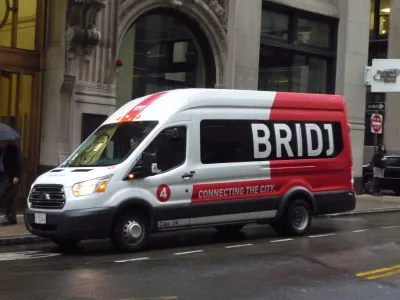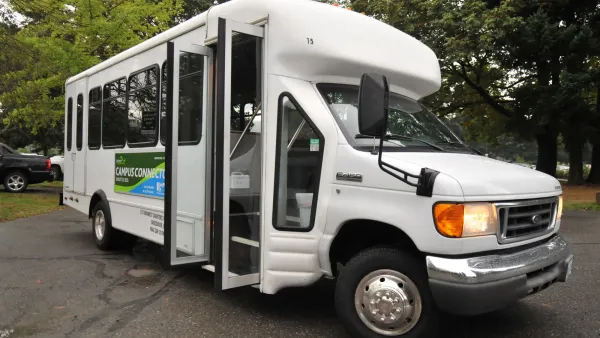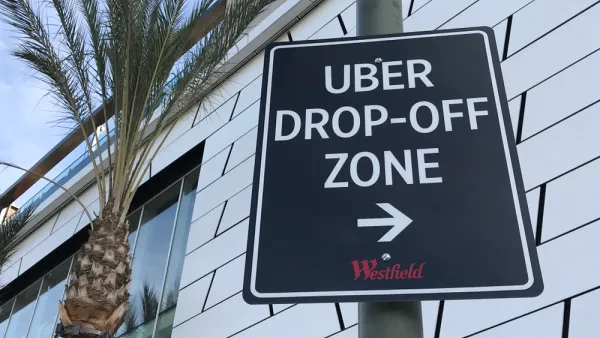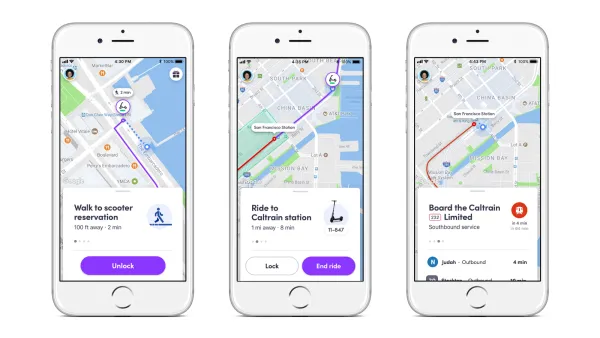Bridj's bet that it could, well, bridge ride-hailing and public transit didn't pay off. Lacking new investment, the company is shutting down.

Inspired by the success of Uber and Lyft, Bridj attempted to disrupt public transit with a van-based model. Linda Poon writes, "Bridj works by allowing users to request a ride in one of its 14-seat vans whose routes are calculated by an algorithm so that riders are picked up and dropped off in the most efficient manner. Each ride costs passengers between $1.50 and $7, depending on what’s agreed upon with the city."
The startup saw some early success by partnering with Ford. "It shortened trips for thousands of Boston commuters, it eventually extended limited service to Washington, D.C., and Austin, Texas, and it got Ford Motors Co. and the Kansas City Area Transit Authority to pilot a year-long experiment in Missouri."
Now, as the company shuts its doors, the question is why couldn't Bridj catch on. "Many didn't use the app beyond the first 10 free rides, despite the fact that the service attracted a largely younger and wealthier crowd—which raised the question of whether Bridj was accessible for the low-income population." Marketing was also lacking, and the company had trouble identifying where shuttles would be needed most.
FULL STORY: Bridj Collapses After Just 3 Years

Analysis: Cybertruck Fatality Rate Far Exceeds That of Ford Pinto
The Tesla Cybertruck was recalled seven times last year.

National Parks Layoffs Will Cause Communities to Lose Billions
Thousands of essential park workers were laid off this week, just before the busy spring break season.

Retro-silient?: America’s First “Eco-burb,” The Woodlands Turns 50
A master-planned community north of Houston offers lessons on green infrastructure and resilient design, but falls short of its founder’s lofty affordability and walkability goals.

Test News Post 1
This is a summary

Analysis: Cybertruck Fatality Rate Far Exceeds That of Ford Pinto
The Tesla Cybertruck was recalled seven times last year.

Test News Headline 46
Test for the image on the front page.
Urban Design for Planners 1: Software Tools
This six-course series explores essential urban design concepts using open source software and equips planners with the tools they need to participate fully in the urban design process.
Planning for Universal Design
Learn the tools for implementing Universal Design in planning regulations.
EMC Planning Group, Inc.
Planetizen
Planetizen
Mpact (formerly Rail~Volution)
Great Falls Development Authority, Inc.
HUDs Office of Policy Development and Research
NYU Wagner Graduate School of Public Service




























